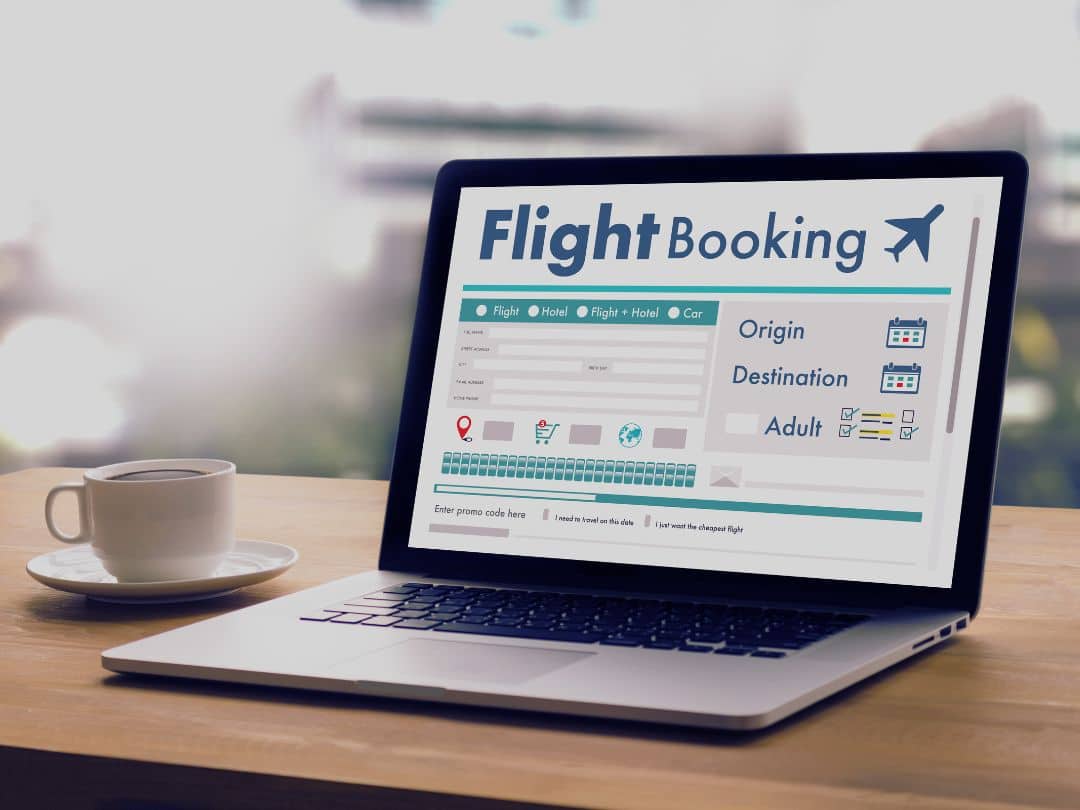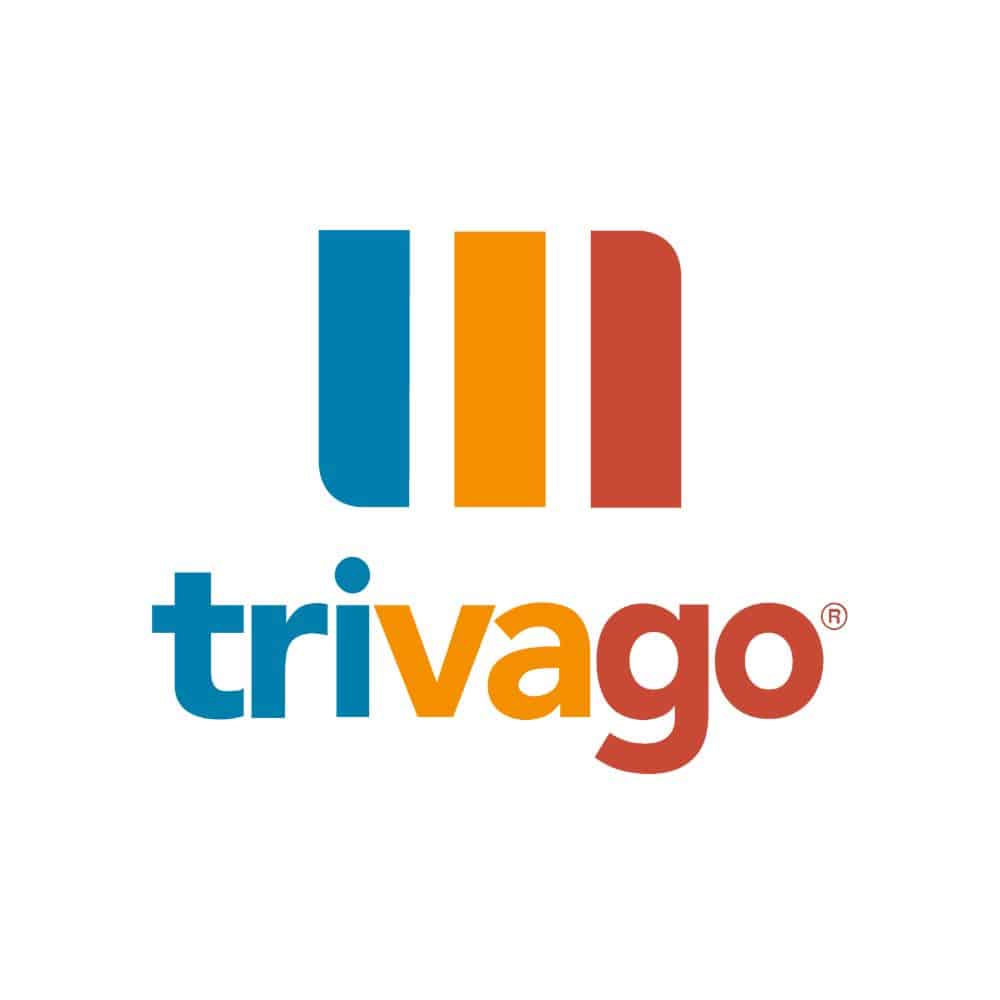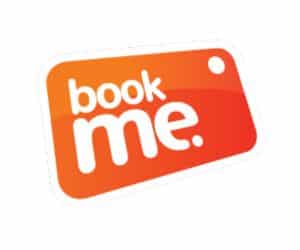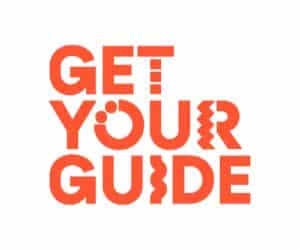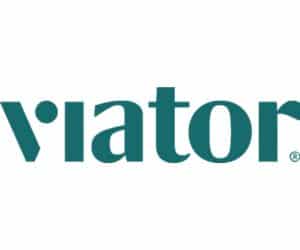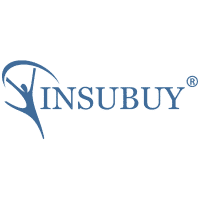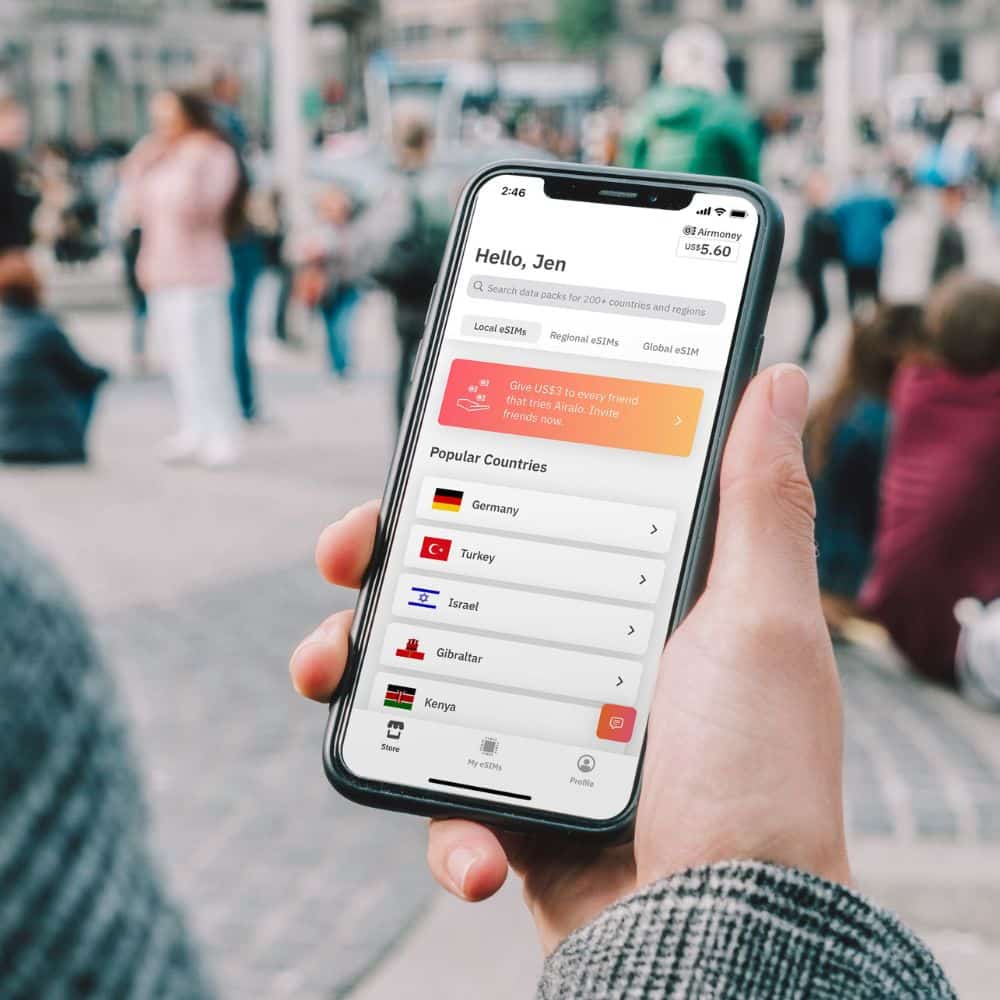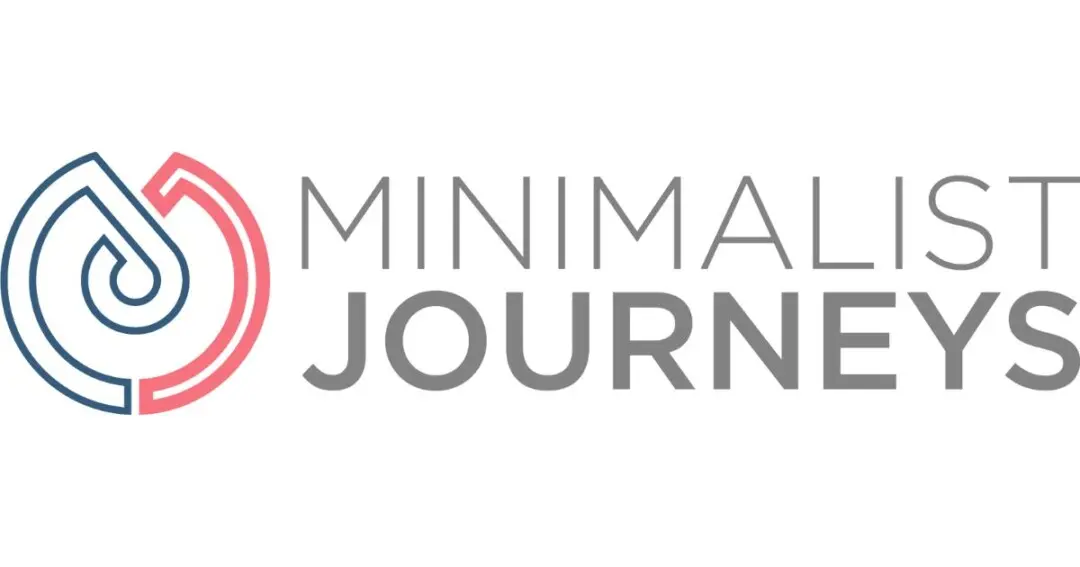The world is swamped with tools and resources that make travel planning easier and more efficient. But do they also align with the needs and values of responsible and budget-minded independent travelers? We’ve been traveling the world full-time for 8+ years and are sharing here the online tools we use to organise our travels. Most importantly though, we share HOW we use them. Whether you’re planning a RTW backpacking trip or a weekend getaway, these tools (and insights) will help you create a travel adventure that’s true to your values and budget.
Accommodation
Our first choice when it comes to accommodation is to not pay for it at all. Don’t worry: We don’t dash off in the middle of the night without settling our bill. We barter instead, by swapping our time and skills for free accommodation.
House sitting is the ideal bartering method for us: We love animals and get to look after someone else’s pet/s while they get to enjoy a well-deserved holiday or focus on their business trip, knowing their furry family and home are well looked after. A win/win for both parties.
There are a ton of websites out there that help you find house-sitting gigs. Here are the ones we’ve used and are happy to recommend:
In between house sits, we stay in accommodation that is owned and operated by locals, including homestays, hostels and short-term rentals (STRs). This gives us home comforts like a (shared) kitchen to prepare meals and (ideally) our own bathroom. At the same time, we support locals and their small businesses. With the help and knowledge of our hosts, we get to see and learn about the local communities we visit in ways we never could if we stayed in an anonymous hotel or all-inclusive resort. Again a win/win.
Platforms that list short-term rentals often get blamed for the detrimental impact of (the wrong types of) STRs on local communities (think locals being driven out of neighbourhoods they can no longer afford to live in). All those platforms have a responsibility, undeniably, but ultimately, it’s us travellers who choose where we stay. Thus, do your research before you book: Does the host have hundreds of (other) listings? Or is the accommodation you want to book a room in (or an annexe to) their home?
While these questions are easy to answer for Airbnb listings, it requires a little more due diligence on other STR booking platforms: Do the description or reviews mention that the host lives next door or nearby? Do the reviews talk about in-person interactions prior guests had with the host/s?
You may also want to consider alternative accommodation booking platforms, including
- bookdifferent which rates Booking.com listings using 3rd party eco certifications and their own Carbon Footprint Calculation.
- ecobnb which rates properties listed using 10 environmental criteria.
- fairbnb which has a 1 host = 1 house policy and directs 50% of the booking fee to social projects at your destination.
- socialbnb which lists accommodation and experiences that fund social and ecological projects.
These platforms address specific shortcomings of mainstream platforms (and we do use them occasionally), but they also come with challenges. For example: Those family-run businesses we stay in can’t afford 3rd party certifications. The same hosts also need the broader reach of bigger platforms to achieve an occupancy that allows them to make a living.
Transportation
For us, travelling responsibly includes being mindful about (and limiting) our carbon footprint.
The best way to reduce our carbon emissions is by travelling less. We do that by focusing on one continent per year and staying as long as our visas allow (rather than jetsetting around the world every two weeks). When we do (have to) use transportation, we look for the most environmentally friendly and affordable option: trains and buses over planes, walking and public transport over hire cars and private transfers.
We know, most of our readers are not able to travel slowly in the sense we do. But even on a two-week vacation, you can travel slowly – by spending more time in one place and exploring it thoroughly. Choosing your holiday destination (how you get there and how you get around) with your carbon footprint in mind is an important step everyone can take.
Experiences
Experiences don’t need to cost the world. In fact, many of the things we see and do to get to know a destination are FREE or cost very little – think of walks and hikes, self-guided or free city tours and swims in the ocean. Even many museums and other cultural attractions can be visited free of charge on specific days – like the first Sunday of the month in Rome.
When we do do a more expensive activity, it’s one that gives us value. If there is a discount offer we can take advantage of – even better.
Whichever one we choose, we make sure that the experience is sustainable and ethical. A wildlife encounter created for our entertainment (think of dancing monkeys, jumping dolphins or elephant rides) – no, thanks. A dirt cheap boat tour that doesn’t pay its crew a living wage – not with us. Immersive experiences run by and benefitting locals (like cooking classes and artisan workshops) – count us in.
How good are OTAs in promoting ethical and sustainable travel services?
Organising your travels independently means (to a large extent) using Online Travel Agencies (OTAs). Despite their reach (on both the supply and demand side of travel), most OTAs are still far away from being a driving force for sustainability and ethics in their supply chain.
What does this mean for us travellers? We need to form our own judgement about the accommodation, transportation and experience options we choose to book.
How do we know an experience is ethical and sustainable? If it’s not mentioned on the operator’s website and/or in customer reviews, we ask (before we book). Questions we frequently ask include:
- Who owns the tour company/experience provider?
- What is the maximum group size?
- How do you minimise the impact of the experience on local wildlife?
- How do you minimise (single use plastic and/or food) waste?
Ethics and Sustainability Standards of Online Travel Agencies
The standards and policies of the online platforms we use every day are (sadly) not (always) in line with (y)our expectations around ethics and sustainability. This is especially true for online marketplaces focused on experiences. We have therefore included the key policies of the experience-focused online platforms featured in our articles for your reference:
Travel Money
While accommodation, transportation and experiences take the biggest chunks out of anyone’s travel budget, foreign exchange fees and commissions (incurred when you withdraw cash overseas or pay for anything in a currency that’s not your own) can also add up quickly… if you’re not aware of the fees or know how to avoid them.
We use credit, debit and travel money cards that have no (or very low) foreign transaction and currency conversion fees. Even better, with bank accounts in three countries (Australia, Germany and New Zealand), we make use of interbank exchange rates and transfer money between our accounts as needed (to then withdraw in the country we visit).
Travel Insurance
We always buy travel insurance – for peace of mind:
- Since we carry (almost) everything we own, like turtles, on our backs, insuring our luggage (and everything in it) is like having home and contents insurance for your property.
- While we live a healthy, active lifestyle, accidents are unpredictable. A hefty medical bill after being injured or hospitalised in a country with expensive healthcare, like the US, is not something we’re willing to risk.
Fellow content creators often recommend World Nomads or SafetyWing for travel insurance. While these can be decent options, pending your requirements, content creators often only promote these providers because of the commission they pay, not because they’ve compared all the options available (or because they’ve used World Nomads or SafetyWing themselves and can speak from experience).
We use Insubuy.com. Why? Because Insubuy is a marketplace that allows us to compare a wide range of travel insurance options (from a number of different providers) side by side, making it easy to find a policy that meets our needs.
Insubuy® is a trusted travel insurance marketplace that offers easy plan comparisons from top providers. You can tailor your protection to suit your travel needs.
Other Services
Other services we use on our travels include eSIMs, secure luggage storage and carbon offsets for emissions we can’t avoid otherwise.
Stay connected (almost) anywhere with Airalo eSIM
We use Airalo eSIMs (on Sandra's Samsung Galaxy S25) whenever we are overseas. Activating it ahead of time means we have instant internet access as soon as we land - no need to join queues to buy a physical SIM before leaving the airport. While Airalo works in over 200 countries, we couldn't use it when visiting the Yemeni island of Socotra. So, do check the country list before you buy. Also, check if your phone is eSIM-enabled.
Exclusive discount codes for our audience
If you're new to Airalo, use the code NEWTOAIRALO15 to receive 15% discount on Airalo eSIMs. If you're already an Airalo customer, use the code AIRALOESIM10 to enjoy a 10% discount on eSIMs. Offers are valid until 31 December 2026!
Luggage Storage
We’ve all been there – arriving in a new city long before check-in or with hours to spare after check-out. Dragging your luggage around (even something as light as our travel packs) can quickly put a damper on your plans. That’s where Radical Storage comes in.
With their extensive network of storage locations across 500 cities in over 70 countries, Radical Storage makes it easy to drop off your bags and explore freely. Booking is simple, whether through their website or app, and costs just EUR5 per bag per day. Even better, each bag is covered up to EUR3,000, giving you peace of mind. We’ve used Radical Storage on several occasions and love how convenient it is – their locations are often close to major attractions or transport hubs.
Carbon Offsets
We keep track of our carbon footprint across all the different lifestyles we’ve led to date. And while we try to minimise it as much as possible, we can’t avoid emissions altogether. To offset those residual carbon emissions, we choose to support carbon capture projects – from planting trees to providing funds for new technologies.
What travel apps and tools are essential for you?
We regularly update this list as the websites and apps we use change from time to time. Likewise, we’re always on the look-out for tools that better meet our needs as responsible and budget-minded independent travellers. If you’ve come across a website or app that hits the mark, let us know.
Before you go, if you liked our article and found it helpful, we would appreciate it if you could share it with your friends and family via the Share buttons below. Even better: Leave a short review on Trustpilot or Google, which would help us further build our online reputation as a (trustworthy and helpful) travel and lifestyle blog.

